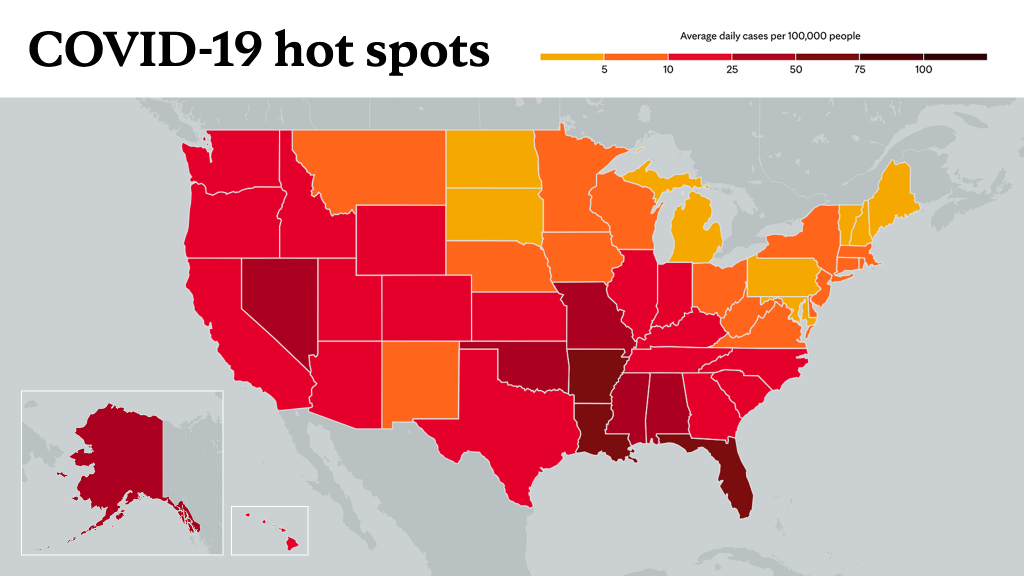Mayo Clinic researchers recently published a study that shows the proper use of masks reduces the spread of respiratory droplets. The findings strongly support the protective value and effectiveness of widespread mask use and maintaining physical distance in reducing the spread of COVID-19.
Reporter Jason Howland has more in this Mayo Clinic Minute.
Journalists: Broadcast-quality video (0:59) is in the downloads at the end of this post. Please courtesy: "Mayo Clinic News Network." Read the script.
Do face masks work at preventing COVID-19 transmission?
"Masks don't work unless we wear them," says Dr. Elie Berbari, a Mayo Clinic infectious diseases physician.
That's what Mayo Clinic researchers say they proved in a recent study.
"We found objectively that masks are critically important. They're very effective at protecting the people around you. If you're wearing a mask, you're protecting others. If they're wearing masks, they're protecting you," says Dr. Matthew Callstrom, a Mayo Clinic radiologist and one of the study's authors.
The experiments used masked and unmasked mannequins that simulated the spread of respiratory droplets and measured it at various distances.
"The most important transmission of a COVID-19 particle is a respiratory droplet. We measured the aerosol particles which are even smaller. And we found that masking was very effective even for those particles, the smallest ones," says Dr. Callstrom.
The study showed that disposable paper medical masks and two-layer cloth masks reduced droplet transmission.
"We're all tired of wearing masks. But I think this is really highlighting the importance of it," says Dr. Berbari.
____________________________________________
For the safety of its patients, staff and visitors, Mayo Clinic has strict masking policies in place. Anyone shown without a mask was recorded prior to COVID-19 or recorded in an area not designated for patient care, where social distancing and other safety protocols were followed.
Information in this post was accurate at the time of its posting. Due to the fluid nature of the COVID-19 pandemic, scientific understanding, along with guidelines and recommendations, may have changed since the original publication date.
For more information and all your COVID-19 coverage, go to the Mayo Clinic News Network and mayoclinic.org.
Learn more about tracking COVID-19 and COVID-19 trends.








